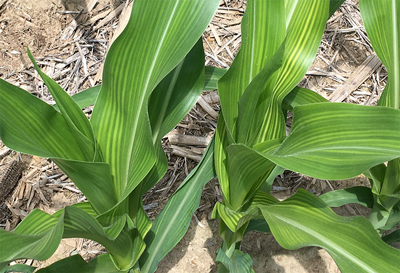Enlist Field Specialists Prepare For 2016 Weed Resistance Battle
Growers struggling with tough weeds want to know more about the tools available to control them. Enlist field specialists bring a wealth of expertise to help growers get the most out of their weed control programs — including the Enlist weed control system. Enlist crops provide tolerance to Enlist Duo herbicide, a proprietary blend of glyphosate and new 2,4-D choline.
Jonathan Siebert, Ph.D., Enlist field sales leader, has seen all types of weed challenges and understands the issues growers face. Siebert oversees Enlist field specialists — experts who provide in-field technical support for distributors, seed companies, retailers and growers. Siebert and this team can help growers with weed control strategies and best practices as they adopt effective weed control programs.
Enlist field specialists offer the technical support for growers who adopt the Enlist system. They provide training, assist with service inquiries and help implement Enlist Ahead — a management resource that allows growers, applicators and retailers to achieve the best results from the Enlist weed control system today and in the future. Enlist field specialists are experts in weed management, application technology and crop research. They can help growers understand the Enlist technology and make better decisions.
Last year provided a great example of why growers need to review weed control strategies and use practices that produce results.
“We saw a lot of rainfall during the 2015 growing season that hampered grower efforts to get into fields to control weeds,” Siebert says. “We’ve also had a wet fall and winter so far. This means growers will need to pay close attention to weed management plans this spring.”
Weather conditions in 2015 allowed weeds to leave plenty of viable seed in the ground. It also may have made fall field work difficult for many growers. A strong El Niño event has contributed to wetter conditions across much of the nation this winter. This puts the onus of successful control on spring and early summer efforts.
An Effective Product Mix
Enlist field specialists can help retailers and growers with those efforts. As Siebert points out, growers should realize the importance of using a combination of pre- and postemergence herbicides and the value of incorporating multiple modes of action to control tough weeds.
“Using multiple modes of action helps keep weed resistance issues in check,” Siebert says. “As with any product, it’s important to follow label directions to ensure proper use and long-term efficacy.”
In addition to herbicides, Enlist field specialists can help with other key application requirements such as appropriate nozzles, spray pressure and tank cleanout practices. These practices are particularly important to achieve the full value of the Enlist weed control system.
This technology provides growers the ability to control weeds early and keep them from taking over a field. Enlist Duo provides an effective and easy-to-implement postemergence segment of an effective herbicide program in Enlist crops.
Growers who plant Enlist corn and Enlist soybeans will be able to use Enlist Duo herbicide to control difficult and herbicide-resistant weeds. Enlist Duo is not yet registered for use on Enlist cotton. Enlist Duo is a proprietary blend of glyphosate and new 2,4-D choline. Because this technology uses two modes of action, it helps preserve and prolong the efficacy of both ingredient herbicides; and it controls the stubborn weeds that rob yield.
Enlist Duo herbicide features Colex-D technology, which provides several benefits, including near-zero volatility, minimized potential for physical drift, low odor and improved handling characteristics.
“Growers who plan their herbicide applications can control weeds better and, by using multiple modes of action, help prevent the development of herbicide-resistant weeds,” Siebert says. “If retailers or growers have any questions, their regional Enlist field specialist or Dow AgroSciences representative can provide answers and additional sources of information. Our goal is to help growers achieve successful weed management for their fields in 2016 and in future years.”






